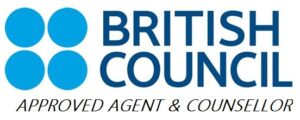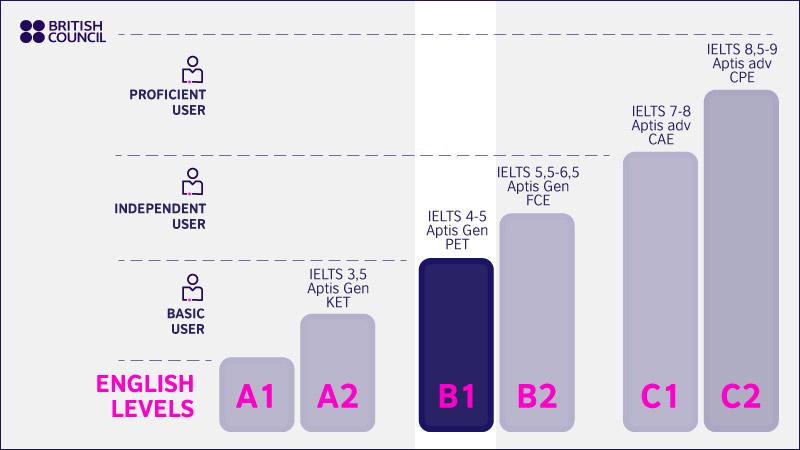Advanced Diploma in Healthcare Practice (Healthcare Management) offer a strong emphasis on practical skills development alongside the development of requisite knowledge and understanding in the sector.
| Awarding Body | |
| Level of Course | Advanced Diploma is a Level 5 qualification (equivalent to the second year of a UK bachelor’s degree). There is an embedded level-4 exit qualification, the HNC |
| Number of Credit Hours | Upon successful completion of the course, the student will have completed at least 240 + credits. On completion of HNC, the student will have completed at least 120 + credits |
| Study Mode | Full-Time |
| Higher National Certificate (1 Year) | The Higher National Certificate (HNC) is a level-4 qualification delivered over one year. The HNC is an embedded component of the Advanced Diploma; however, HNC can be taken as a stand-alone qualification. If a student opts to take the HNC, the student would be eligible for this after the successful completion of seven level 4 modules (units) offered in the first year. |
| Advanced Diploma (2 Years) | Advanced Diploma is a level 5 qualification delivered over two years, the first year at level 4 and the second year at level 5. If a student opts to take the Advanced Diploma, the student will be eligible for Advanced Diploma after the successful completion of 14 modules (units) offered in the course. |
| Attendance | Full-time students are required to attend 21 hours per week in term time |
| Workload | An average of 8-10 hours of home study time per week for this programme is recommended |
| Exemptions | No exemptions are allowed for this programme |
What Could These Qualifications Lead To?
The Level 4 Higher National Certificate provides a solid grounding in Healthcare Practice, which students can build on should they decide to continue their studies beyond the Certificate stage. The Advanced Diploma allows students to further specialise by committing to specific career paths and progression routes to degree-level study.
On successful completion of the Advanced Diploma, students can develop their careers in the healthcare sector through:
- Entering employment
- Continuing existing employment
- Linking with the appropriate Professional Body
- Committing to Continuing Professional Development (CPD)
- Progressing to university.
The Advanced Diploma is recognised by Higher Education providers as meeting admission requirements to many relevant health and social care-related courses, for example:
BSc (Hons) in Management Studies (Health and Social Care)
BA/BSc (Hons) in Health and Social Care
BA/BSc (Hons) in Health Studies
BSc (Hons) in Adult Nursing
BSc (Hons) in Public Health
BSc (Hons) in Health Promotion.
After completing Health & Social Care certificate and diploma endorsed by ICM, students may progress directly into employment.
Description
The award is made up of up to 14 units.
Mandatory core units
Unit 1 Law, Policy and Ethical Practice in Health and Social Care
Unit 2 Demonstrating Professional Principles and Values in Health and Social Care Practice
Unit 3 Supporting the Individual Journey through Integrated Health and Social Care
Unit 4 Fundamentals of Evidence-based Practice (Pinnacle set Project)
Unit 18 Innovation and Improvement through Action Research (Pinnacle set Project)
Unit 19 Reflective Approaches in Implementing Person-centred Practice
Mandatory specialist units
Unit 10 Developing Operational Management Skills for Healthcare Practice
Unit 17 Effective Reporting and Record-keeping in Health and Social Care Services
Unit 23 Managing Quality in Care Environments
Unit 25 Facilitating Change in Healthcare Environments
Unit 29 Human Resource Management for Healthcare
Optional units
Unit 9 Anatomy and Physiology for Health and Ill-Health
Unit 32 Team and Individual Leadership: Coaching and Mentoring Others
Specialist optional units
Unit 30 Pharmacology and Medicine Management
Teaching & Learning
Learning and Teaching Strategies
Teaching takes place through practical and theoretical classes, lectures, seminars, workshops, data analysis sessions, discussions, tutorials, industry, and community visits. The student learns through these and through individual and small group self‐managed activities, including resource‐based learning and online learning support through the VLE.
Teaching is linked directly with professional practice and research, both of which directly inform and enhance course content and delivery. Visiting professionals contribute to the course delivery with full-time staff and are vital to providing the student with access to current professional practices and issues developing student’s employability skills and knowledge.
Seminars and tutorials make up a supportive network, which is complemented by the virtual learning center. Whether at home or on campus, help is not far away.
Assessment:
Each module in the programme has a set of assessment criteria which the learner will need to demonstrate to pass the module. Students will undertake one or more pieces of assessment (assessment items) for each module and need to show in work presented for assessment that the assessment criteria for the module are met.
Assessment items are designated as practical, presentation, and coursework. The work presented by the student for assessment is varied and could include:
Practical Assessments
Data Analysis
Case Studies
Reflective activities where the student looks back over her/his experiences, analyse them with the assistance of relevant theory and reflective tools and learn from the experience
Online discussions that the students have had with their peers, tutors, and invited contributors to the programme
Oral and written reports
Journals, blogs, and logbooks
Plans (e.g., action plans, plans for the group activities)
Presentations
Portfolios of Evidence
A Level 3 qualification in Health and Social Care (or related subject)
A GCE Advanced Level profile that demonstrates strong performance in a relevant subject or adequate performance in more than one GCE subject. This profile is likely to be supported by GCSE grades A* to C and/or 9 to 4 (or equivalent) in subjects such as maths and English
T Levels Qualification
Other related level-3 qualifications
Access to a higher education certificate awarded by an approved further education institution
Work experience in the Health and Social Care Sector is desirable.
An international equivalent of the above
A current enhanced DBS Certificate – should not have a criminal background which might prevent them from working with young people or vulnerable adults
English Language
In order for students to be successful on Higher National qualifications, which are both taught and assessed in English, it is critical that they have an appropriate level of English language skills. The following clarifies the requirements for all centers when recruiting applicants on to new Higher National qualifications.
All students who are non-native English speakers and who have not undertaken their final two years of schooling in English can demonstrate capability in English at a standard equivalent to the levels identified below before being recruited to the programme:
Common European Framework of Reference (CEFR) level B2
PTE 51
IELTS 5.5; Reading and Writing must be at 5.5 or equivalent
Furthermore, international (Tier-4) students must show proof of English – language competence through success in an English test or background approved by UKBA. They should have a CEFR B2 level and above in reading, writing, listening, and speaking. European Union students should also have good exam results or a background in the English language.
Restrictions on Learner Entry:
The Higher National qualifications are accredited on the Regulated Qualifications Framework (RQF) for learners aged 18 years and over.
Join all the International Students Enjoying Pinnacle Education Services now
Become Part of Amofahba Pinnacle Family to Further Your Career.


